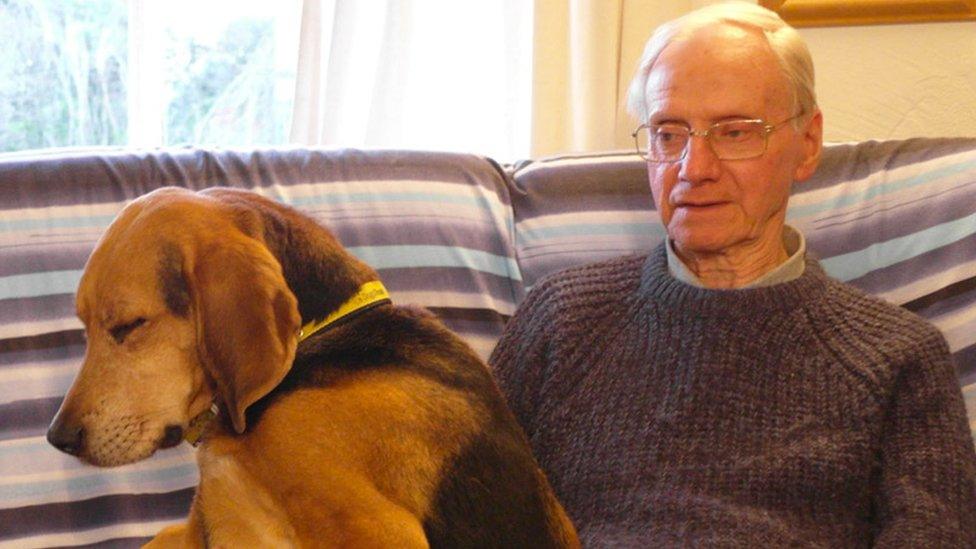Peter Wrighton murder: 'Unfathomable' failure in dog walker killer's care
- Published

Alexander Palmer was jailed for a minimum of 28 years
The granddaughter of a dog walker murdered by a man with a "desire to kill strangers" has said failings in the killer's care were "unfathomable".
Alexander Palmer had been cared for by Norfolk and Suffolk Foundation Trust (NSFT) before stabbing 83-year-old Peter Wrighton 45 times in August 2017.
Meg Todd said her grandfather's murder seemed "more like a film script than real life".
NSFT said it would welcome meeting Mr Wrighton's family to discuss concerns.
Palmer's murder trial heard he had a "desire to kill strangers - dog walkers seemed to be a particular bugbear of his" and had told hospital staff he intended to hurt someone.
The former soldier attacked Mr Wrighton from behind in woodland near East Harling, Norfolk, before dumping his body under brambles.
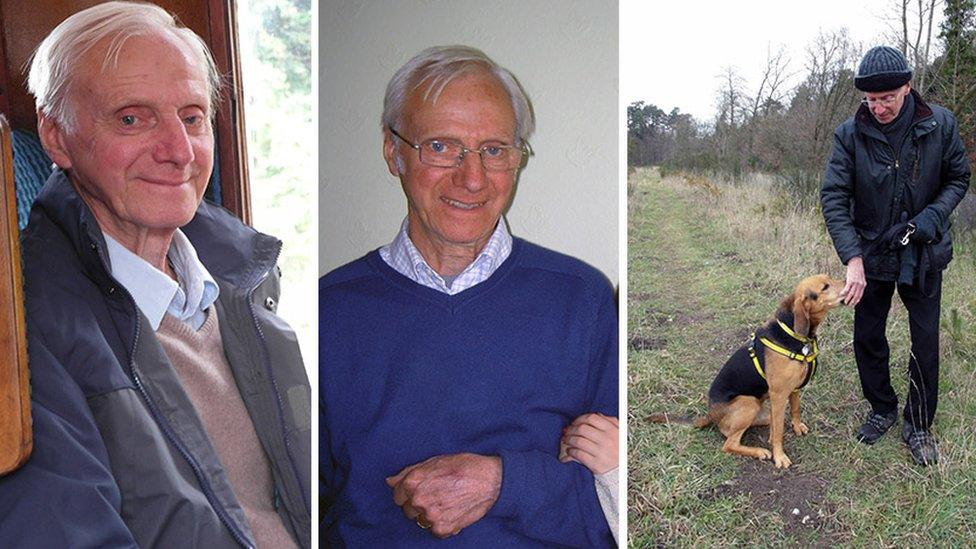
Peter Wrighton was walking his dogs alone when he was set upon from behind by Palmer
NSFT, which is currently in special measures, undertook a review of its involvement in the case but the BBC's initial request for a copy under the Freedom of Information Act was refused.
However, following a second request the trust released three sections of the report - its recommendations, action plan, and actions taken since the killing.
The review found "weaknesses" in the handling of Palmer's last episode of care - including a "lack of clarity" about the assignment of a care co-ordinator.
The review said "discharges should be discussed in the team meeting where a doctor is usually present, but [it was] acknowledged that the treating doctor was not in attendance at the meeting when the discharge of this case was discussed".
Ms Todd said the fact Palmer's doctor was not at the meeting "seems a fundamental oversight".
"I'm sure their resources are stretched and they don't have enough staff but when someone is presenting such a serious case - there aren't really any words for it, to not have a doctor," the 22-year-old said.
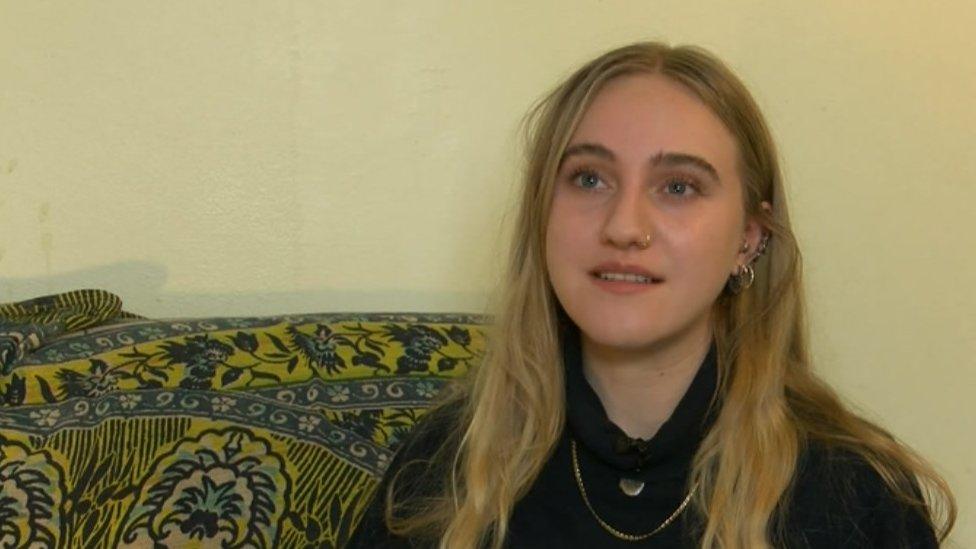
Meg Todd said her grandfather's murder seemed "more like a film script than real life"
The health trust had been warned by Palmer's parents that he was collecting knives and not taking his medication.
His mother and stepfather told the BBC last year he had been documented as saying it was "inevitable" he would kill.
Ms Todd, a post-graduate researcher living in Edinburgh, said she first learned of issues in Palmer's care during evidence given at the murder trial.
"It just seemed unfathomable that it had been allowed to happen that way," she said.
"Someone knew that he had said he wanted to kill dog walkers specifically, [he had] extreme symptoms and the fact that he was clearly dangerous.
"That is what shocked us most, how things hadn't been done in reaction to that.
"Honestly, it seemed like something out of a film, like the Zodiac Killer or something."
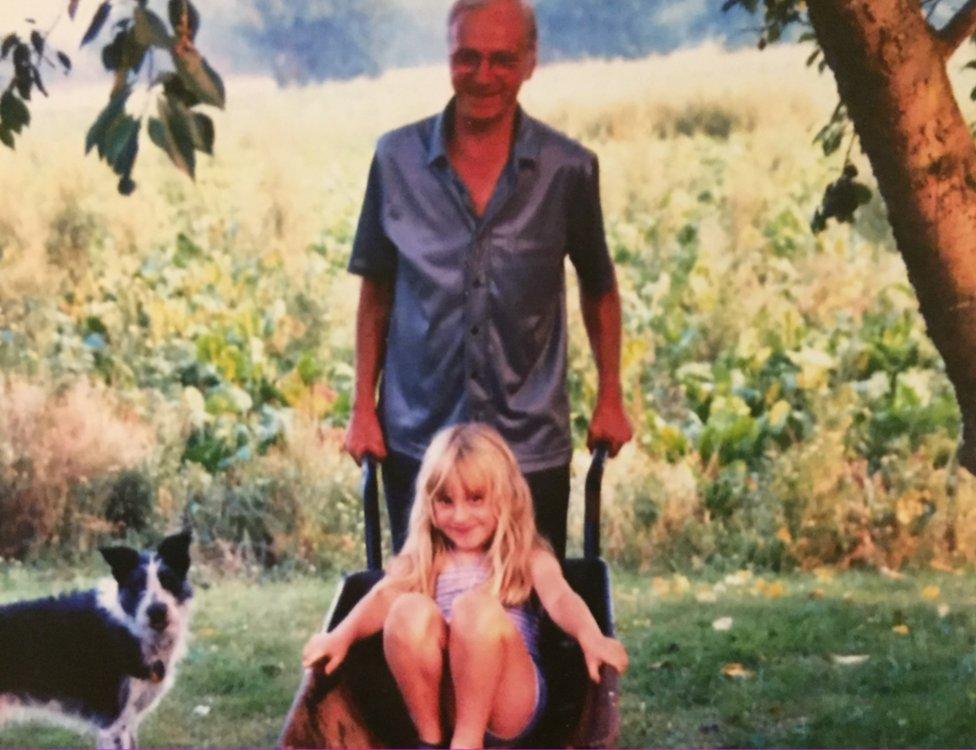
Meg Todd spent lots of time together with her grandfather enjoying the outdoors
Ms Todd and her mother Carole attended a meeting at NSFT's request earlier this year but thought the trust had acted "defensively" in their dealings with them.
She said: "It was good having the meeting and good getting the report… but I do feel like it would have been better to have honest and frank chat as opposed to them trying to cover their backs."
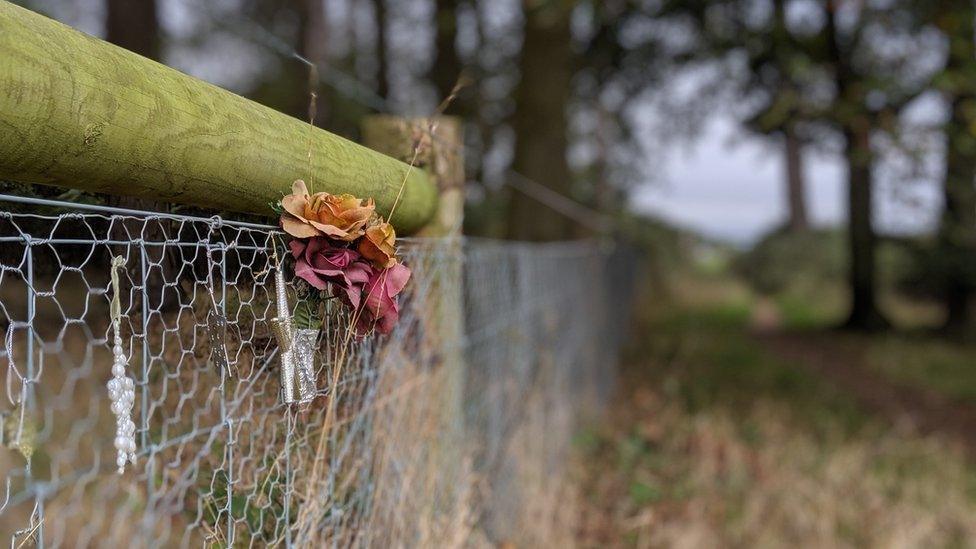
Flowers have been left near the scene in memory of Peter Wrighton
Ms Todd said she was "shocked" to learn Palmer had been discharged via a text message.
But she said she believed the trust had made steps towards improving systems for the better, such as reducing the number of people involved in each patient's care, but added "whether that is enforced is another matter".
She also acknowledged Palmer did not want to receive treatment, and said: "There's only so much you can do with someone who is as evil as he appears to be."
An NSFT spokesman said the trust wished "to express our condolences and deepest sympathy" to Mr Wrighton's family and friends.
He added: "We shared as much information with Mr Wrighton's family as we were able to within the confines of our legal obligations in respect of patient confidentiality.
"We are disappointed and saddened that the family has concerns relating to our organisation and would welcome an opportunity to discuss them directly with them.
"Along with all NHS organisations, we would never discuss such concerns publicly but we will be making contact with Mr Wrighton's family to arrange a meeting so these can be fully examined and investigated."
- Published3 May 2018

- Published1 March 2018

- Published28 February 2018

- Published26 February 2018
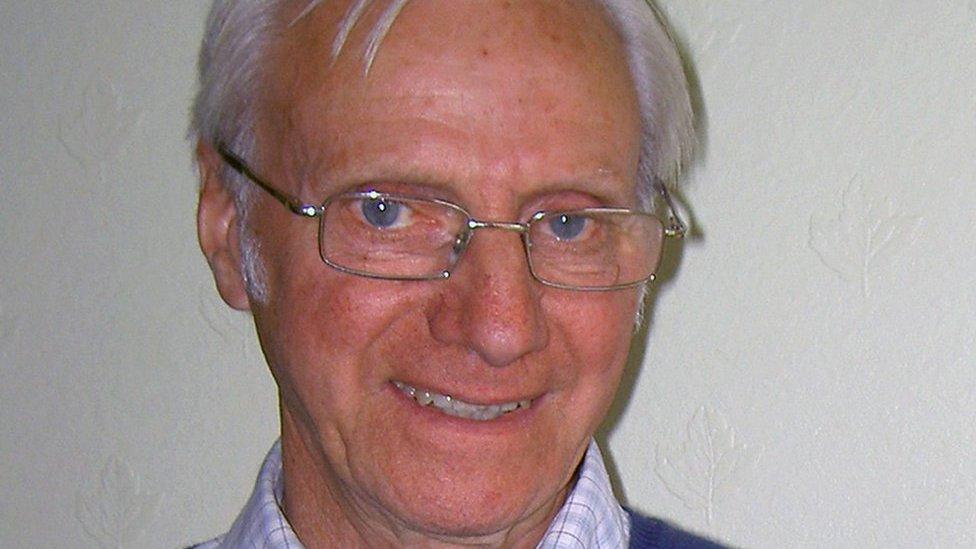
- Published21 February 2018

- Published20 February 2018

- Published9 August 2017
